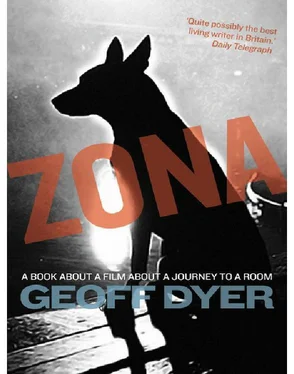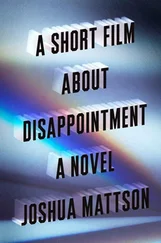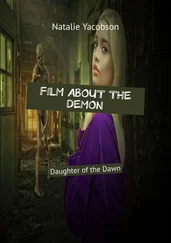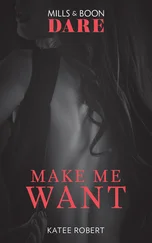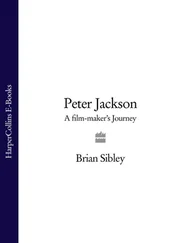In any case, this slight interlude of ennui is cut short by what comes next: a shot of the muddy expanse of the Zone, dry-looking but rippling — quicksand perhaps. 30Whatever it is, this quicksandy stretch of dry muddiness or muddy dryness ripples exactly as it does in the early stages of an LSD trip, when the external world takes on some of the internal rhythms of the body, its breath and pulse. (This, apparently, was from the rejected version of Stalker, shot by Rerberg, one of two such sequences to have made their way into the released version.) The first few times I saw Stalker were during a phase of my life when I took LSD and magic mushrooms quite regularly. 31
This shot of the rippling earth seemed a clear indication that what we were dealing with was a trip, that the Zone was a psychedelic place where — exactly in the way suggested by acid guru Timothy Leary — what you experienced was dependent on what was going on in your head. Set and setting. We had excited discussions about this, my friend Russell and I, about whether Stalker and his clients ever left the bar, whether they just stayed there, tripping their heads off on fly agaric mushrooms from Siberia. Tarkovsky, it seems, was not averse to such reactions, was pleased ‘if at the end the spectator came to doubt whether he had even seen a story.’ The ground ripples as if it is not solid at all. A wind kicks up a dust storm, which then seems to turn into a storm of dried blossom, so intense it could almost be snow. (Could that really be what’s happening? Could it be snowing in the Zone?) The little islands of grass do not ripple. The trees in the background do not ripple: it’s just the boggy-looking dried earth that ripples and then, gradually, stops rippling. How does Tarkovsky do this, how does he achieve these effects? Or are they not effects? Was it simply luck that he came across a patch of ripply quicksand and then it started snowing where, a few seconds earlier, it had been dusting and blossoming? Is this part of the random magic of cinema that Herzog discovered in a sequence of footage shot by Timothy ( Grizzly Man ) Treadwell? Treadwell plunges into and then out of shot, leaving the camera to record only the wind-whipped bushes and foliage. ‘In his action-movie mode Treadwell probably did not realize that seemingly empty moments have a strange secret beauty,’ Herzog explains as the bushes and trees bend and sway in the wind as if in unconscious homage to Tarkovsky. 32‘Sometimes images themselves develop their own life, their own mysterious stardom.’
It’s like a dream but Stalker’s eyes are not closed, as if everything we are seeing is an open-eye hallucination. 33He is so still, his eyes so staring, that he could be dead. He looks, in fact, incredibly like the dead man photographed by Edward Weston in the Colorado Desert in 1937: same hair, same gaunt, anguished features, same stubble— the only difference is in their surroundings: bone dry in Colorado, rheumatically damp in the Zone. A voice— a woman’s or a child’s, perhaps Stalker’s wife or child— recites a poem that is not exactly a poem; it’s a passage from Revelation about the moon turning to blood and stars falling from the sky. When I first saw Stalker I wondered what this meant and what was going on, in the same way that I had agonized over the Fisher King, The Golden Bough and Phlebas the Phoenician in The Waste Land; now both film and poem seem to make perfect sense on their own terms even if the exact nature of that sense is as elusive as a fish in water. The camera moves into brown monochrome, the muddy sepia of sleep that is like a dream of death, of the things that are left over when there are no people left awake or alive, a future when it can seem that everything on earth — all the works of art scattered across the great museums — was dreamed by some sleeping consciousness that never quite got round to waking up and resuming work. Beneath the surface of the water are a few fishes (visibly silent in the way that only a fish can be), coins (valueless as currency but, in their obsolete way, priceless) and an image of St. John the Baptist (bearded, kindly, wearing a cloak) from the Ghent Altarpiece by the brothers van Eyck. These sequences, like the green landscape with the wind gusting through them, are quintessentially Tarkovskyan; there’s something like this in all of his films: the magic of the discarded ordinary, the filmic archaeology of the everyday. 34
JOLTED OUT OF SLEEP and back to colour…The dog is there now, summoning us back to the showable world, the sayable, barkable world that we perhaps didn’t leave at all, just entered more deeply. Stalker opens his eyes as if returning from the dead, from the dream of life. He begins reciting from the Gospels: and that very day two of them were going to a village called…We don’t hear the name of the village but it’s Emmaus, obviously. Now, one might want to ignore the Orthodox Christian aspect of Tarkovsky but it’s unignorable — unignorable but, at least from my point of view, confusable. He himself approaches but they don’t recognize him and He asks them why they are sad and one of them named…The camera lingers over the face of Professor, just as Stalker is about to pronounce the name Judas. Or so I thought because it’s all jumbled up in my head, this stuff: vague memories of Sunday school, religious education at school and, more recently (but still a while back), bits from The Waste Land. So no, it’s nothing about betrayal, it’s actually about the Resurrection, the he is not dead, he is risen bit. Writer’s eyes are open, Professor’s eyes are open and nei-ther of them is hallucinating. They really are sitting there listening, both thinking the same thing: Has this Stalker of theirs got a Messiah complex? Not exactly changing the subject but picking up from where they left off before they all nodded off, Stalker reminds them that they were talking about the meaning of life and the unselfishness of art. (Were they? Were we? How long ago?) Take music, for example. It’s not connected to reality, is devoid of associations. As he’s speaking the camera lifts up from rocks and their emerald-green covering of moss into the glassy grey reflection of the lake. A Sugimoto-esque vision of absolute nothingness, devoid of associations (except, I suppose, associations of Sugimoto), fills the screen until, as the camera continues moving upwards, we see the blurry reflection of the trees that fringe the lake, the still lake, then the trees themselves and the grey sky whose reflection was held by the lake. That glimpse of nothingness unconnected to reality, it turns out, was itself a bit of reality. 35And a reminder of how little sky there is in Stalker or in Tarkovsky’s films generally. He is the most earthbound, least Shelley-like, of visionaries, interested only in the sky as it is reflected ‘in the river, in the puddles.’
There’s the woody sound of the cuckoo again. Professor and Writer are listening, spellbound, as Stalker sermonizes about how something in us resonates with harmony, with the unneeded beauty of music. They’re not bored or cantankerous kids now, they’re entranced, sitting there hanging on his every word, listening to him as if it’s the sound of music itself, when there is only the sound of the cuckoo, proclaiming the unasked miracle of its existence.
Not that that makes them eager to sample what Stalker has got lined up for them next: a grimy, slimy, morbid-looking tunnel. Again, one can only sympathize with their reluctance to proceed. The Zone started off as a nice, gentle, benign-looking place but has got progressively scarier and more forbidding with every passing minute. Writer says he doesn’t want to go first, and Professor doesn’t look too keen either. They draw lots and Writer loses — he’ll have to go on point. Having been so contemptuous of Stalker and his nuts, Writer now asks him to throw one. He has gone from extreme scepticism to fearful belief. Perhaps this says something about the nature of faith. Maybe there is no belief without fear— fear of the consequences of that belief. Stalker goes one better than chucking a nut, he hurls a huge rock and, as if it’s a grenade (‘Fire in the hole!’), shuts the creaking iron door to protect them from the blast. No sound at all. The rock has either vaporized in mid-flight or landed on sand so soft there’s not even the faintest of plops. This hardly allays Writer’s fears as he steps into the tunnel. Stalker and Professor step aside from the entrance of the tunnel as if fearing that any damage coming the Writer’s way might end up harming them too. As before, when Writer was making his cynical way directly to the Room, we are right behind him, behind his head as he walks, gingerly, down the echoey, intestinal, glass-strewn, stalactiteadorned tunnel. There’s nothing on the walls but damp. It looks like one of the curving corridors of the space station orbiting Solaris, after it’s fallen into disuse, been abandoned and left to go to ruin and sublet to the makers of one of the Alien sequels. There’s no question of a monster or axe murderer leaping out — that is, there’s no enslavement to convention — but we are persuaded, by now, that pretty much anything can happen, even if that anything is nothing. It’s another of those sequences that seems tacitly about the film itself. Wim Wenders thinks that with Stalker Tarkovsky took cinema into ‘utterly new terrain’ where ‘every step could be your last’. Everyone— audience, filmmaker, actors, even the medium itself — is in ‘extreme danger at every step’. So Writer is our luckless representative (a Stalker in his way), sent ahead to scout out this ‘life-threatening’ territory. 36He keeps going. One step at a time. We’re in front of him now, looking back at him coming forward as he looks ahead, preparing himself for whatever it is he is about to confront. He’s not left his fear behind; on the contrary, he is getting closer to its source with every crunching step. The tunnel is leaking like a damaged sub. Water is dripping through the roof and might be coming up through the floor as well. Glass cracks and crunches underfoot. He’s in the most dangerous part of the Zone, the meat grinder, but he could be anywhere:
Читать дальше
